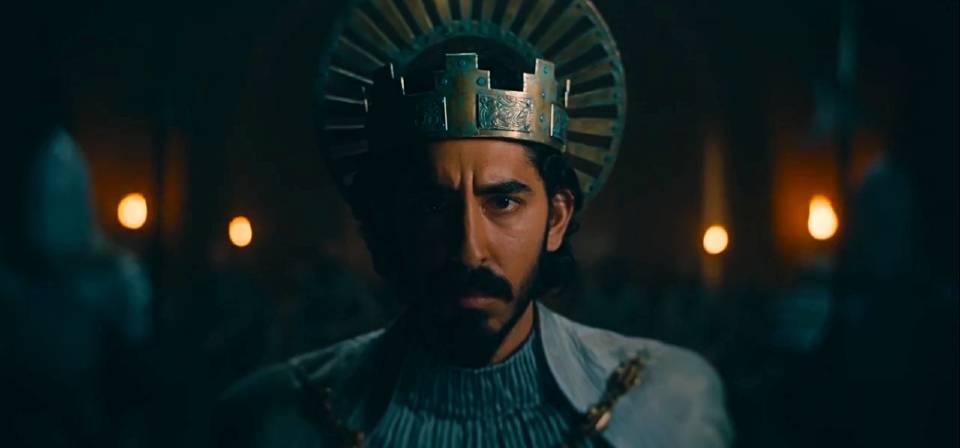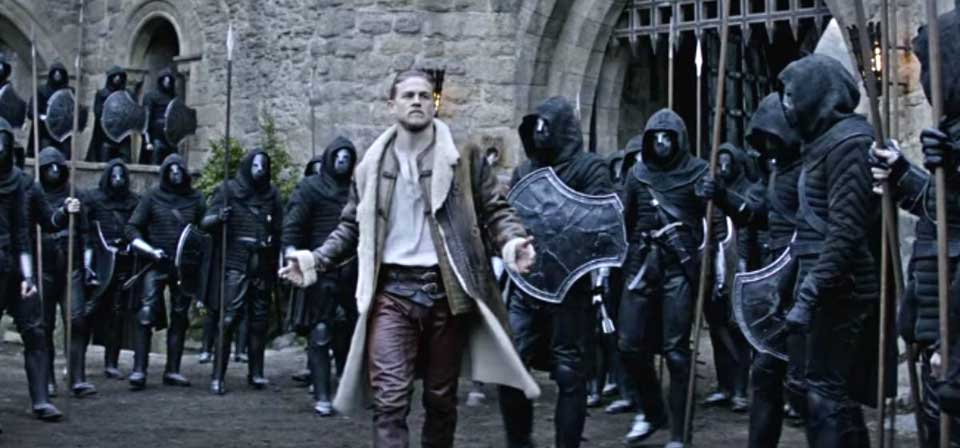Tags :: Darker-than-Dark Ages

A deep cut: The Green Knight
After the library of books that is the Bible, no literary corpus means more to me than Arthuriana, and no Arthurian work means more to me than Sir Gawain and the Green Knight.

King Arthur: Legend of the Sword (2017)
However Arthur himself is depicted, the Arthurian hero (be it Gawain, Bedivere, Perceval, Lancelot, Galahad or Arthur himself) is a man who stands for an ideal or a cause … If you can’t manage this much, you aren’t reinventing the myth — you’re simply committing an act of cultural vandalism.
From the Crusades to Columbus: Religion in Ridley Scott’s Historical Epics
A self-described atheist, Sir Ridley Scott has developed a generally bleak vision of religion, particularly the Judeo-Christian tradition, throughout his work, above all in historical sagas like Robin Hood (2010) and 1492: Conquest of Paradise (1992).
Snow White and the Huntsman [video]
Snow White and the Huntsman in 60 seconds: my “Reel Faith” review.
Snow White and the Huntsman (2012)
The film transposes its story from the register of fairy tale to that of epic myth — but it’s trying for unironic epic myth, iconic good vs. iconic evil. Iconic evil: check. Iconic goodness: There’s the rub.
Red Riding Hood (2011)
Red Riding Hood is a movie of a sort that I would very much like to see if anyone could make it, which is another way of saying that it is not that sort of movie at all. A real Hollywood fairy tale is the rarest thing in the world. Hollywood is more comfortable with myth and legend. Partly, I think, it’s a matter of scale: Mythology provides the sort of sweeping, epic scope that lends itself to big-screen Hollywood feature filmmaking. Fairy tales are smaller and more intimate, and require a lighter touch.
Robin Hood (2010)
Once again a peasant hero reminds us that no man is a knight or peasant but thinking makes him so, and a blacksmith or a stonemason can, and in all likelihood will, shape the destiny of nations. Would you be astonished to learn that there is a proto-feminist heroine who dons armor for the climactic battle? That not only is Richard the Lionheart’s brother John a degenerate, perfidious schemer, Richard himself (briefly seen at the end of Kingdom of Heaven at the outset of his crusade) is a cruel and venal marauder, as bereft of honor as of funds?
Lancelot of the Lake (1974)
More, it is a tale of fellowship undone not first of all by the treachery of enemies but by the frailty of human nature itself, even of the most trusted intimates. Perhaps that’s partly why classic Hollywood forayed more successfully into Sherwood Forest and Zorro’s California than Camelot.
Kingdom of Heaven (2005)
The story, in fact, could largely be described as the failure of moderate Christians to restrain fanatical Christians from oppressing innocent Muslims, thereby provoking justifiable Muslim retaliation against the Christians, both fanatics and otherwise. Yet Saladin himself is not an uncomplicated noble figure. As he prepares to lay siege to Jerusalem, he explicitly rejects the possibility of showing mercy, relenting only when Balian fights him to a standstill.
The Seventh Seal (1957)
Starkly existential, boldly poetic, slow and grim, Ingmar Bergman’s great classic The Seventh Seal has haunted film aficionados, baffled and bored college students, inspired innumerable parodists, and challenged both believers and unbelievers for nearly half a century.
King Arthur (2004)
Even in the silent era, with Douglas Fairbanks playing every legendary hero from Zorro to Robin Hood to D’Artagnan, seeking adventure everywhere from the Spanish Main (The Black Pirate) to Arabian Nights territory (The Thief of Bagdad) to South America (The Gaucho), King Arthur was overlooked.
Recent
- Benoit Blanc goes to church: Mysteries and faith in Wake Up Dead Man
- Are there too many Jesus movies?
- Antidote to the digital revolution: Carlo Acutis: Roadmap to Reality
- “Not I, But God”: Interview with Carlo Acutis: Roadmap to Reality director Tim Moriarty
- Gunn’s Superman is silly and sincere, and that’s good. It could be smarter.
Home Video
Copyright © 2000– Steven D. Greydanus. All rights reserved.